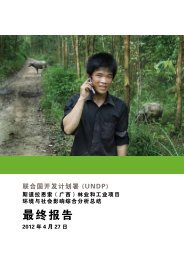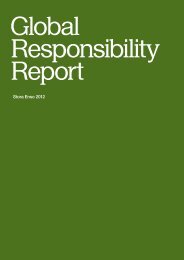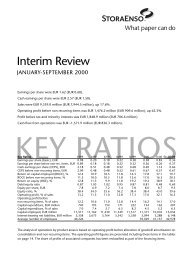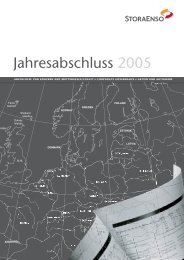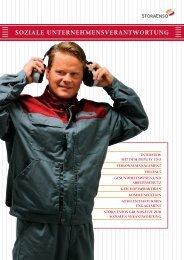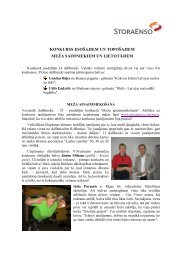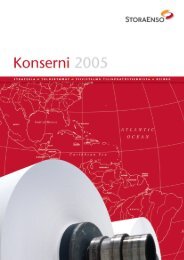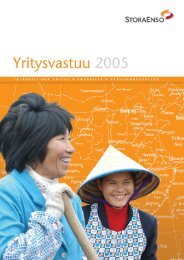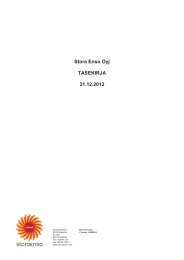You also want an ePaper? Increase the reach of your titles
YUMPU automatically turns print PDFs into web optimized ePapers that Google loves.
Phenomenon<br />
Yum – worms!<br />
Sipunculus nudus, a marine worm also known<br />
as peanut worm, is commonly found on subtidal<br />
zones of sandy shores in temperate or tropical<br />
waters. The worm typically hides in sand<br />
burrows that it makes itself. Its diet consists of<br />
plant or animal tissue fragments it finds in the<br />
surrounding sand.<br />
The worm is a common delicacy in Beihai,<br />
Guangxi, in Southern China, where it is called<br />
Běihǎi shāchóng ( 北 海 沙 虫 , literally “Beihai<br />
sandworm”). The worm is collected, gutted and<br />
VESA LAITINEN<br />
then cooked, steamed, fried or dried. Steamed<br />
worms are usually served with garlic and noodles.<br />
Fried worms are seasoned with sugar.<br />
Collecting these sandworms is an important<br />
source of income in the villages located in<br />
the coastal area of Beihai where <strong>Stora</strong> <strong>Enso</strong>’s<br />
forthcoming consumer board and pulp mill will<br />
be located. The worm is sensitive to toxic and<br />
sea pollution, so it is essential that the industries<br />
close to the Southern China Sea take care of their<br />
emissions.<br />
SUVI-TUULI KANKAANPÄÄ<br />
Column<br />
Lauri Peltola<br />
Executive Vice<br />
President, Global<br />
Identity<br />
Having a heart<br />
and Purpose helps<br />
For many of us it’s difficult to answer questions<br />
like “What’s your dream?” or “What’s the<br />
purpose of going to work every day?” There<br />
are so many inadequate answers to questions<br />
like this that it’s easier to simply avoid dealing<br />
with these issues altogether: it makes life a lot<br />
easier. For many of us, listening to our company<br />
Pathfinders team and their experiences from<br />
other global companies – for instance, looking at<br />
Indian conglomerate Mahindra & Mahindra and<br />
their purpose “enable people to rise” – made us<br />
rethink. Instead of having a company vision and<br />
mission that one can barely remember, wouldn’t it<br />
be great if our company had a common purpose<br />
uniting all employees together: something that<br />
everybody could be proud of and relate to?<br />
These kinds of thoughts were circulating<br />
among colleagues in February <strong>2012</strong>.<br />
During the spring we started discussing <strong>Stora</strong><br />
<strong>Enso</strong>’s mission, vision, values and purpose. The<br />
discussion really got going and pretty soon, with<br />
support from the Pathfinders, we had the first<br />
Purpose suggestions for the Group Executive<br />
Team to look at. It took a lot of discussion,<br />
involving different people from several parts of<br />
the organisation, deep engagement and modifications;<br />
all in all half a year had passed before we<br />
were ready to launch the new company Purpose:<br />
“Do good for the people and the planet”. Having<br />
also boiled down our values into two new ones –<br />
“Do what’s right” and “Lead” – and maintaining<br />
“rethink” as our engine for change, I think we now<br />
have a short, sharp and clear articulation of what<br />
<strong>Stora</strong> <strong>Enso</strong> is all about. The mission and vision<br />
are now gone, the Purpose is here to stay.<br />
The biggest sin many companies are guilty of<br />
with their mission, vision and values, is that<br />
often they are too beautiful. In fact, they can be<br />
so long and carefully worded that nobody can<br />
remember them and they end up being a mere<br />
sugar coating without any real connection to<br />
strategy or daily operations. Our goal is to secure<br />
a tight relationship between our Purpose, values,<br />
company strategy and our daily work. Making<br />
this possible requires strong commitment from<br />
everyone, at all levels of the organisation.<br />
Having a bold Purpose also means facing<br />
difficult choices. How can you claim to<br />
be doing good for the people when you have<br />
to safeguard company financial performance,<br />
restructure, and potentially end up laying people<br />
off? What should one do, when somewhere down<br />
the supply chain you sense that human rights are<br />
not being respected? How do you react when<br />
people claim that eucalyptus plantations threaten<br />
natural diversity? There is no automatically right<br />
answer to any of those questions. Laying people<br />
off may save the jobs of others. Turning your<br />
back on violation of human rights down in the<br />
supply chain by discontinuing the business in<br />
question may be worse for people than staying<br />
and monitoring the supply chain in an attempt<br />
to improve their lives. Eucalyptus plantations act<br />
as a great carbon sink, enabling the planet to<br />
breathe.<br />
Listening to stakeholders’ views on controversial<br />
questions is the privilege and obligation of<br />
all global companies. “Doing good for the people<br />
and the planet” is not a simple task, and listening<br />
to different opinions and angles enables us to do<br />
what’s right. Often you truly need to lead in order<br />
to live up to this purpose: you need to be the first<br />
one on a path never walked before. Stopping along<br />
the way to listen to your stakeholders – even those<br />
with the most critical outlook – puts things into<br />
perspective and helps to find the best solution. It is<br />
rarely perfect, but when you feel you have worked<br />
hard, listened to different parties and reached the<br />
best possible result, you are there.<br />
It’s funny that in a modern corporate world you<br />
need your heart as much as your head. For<br />
decades, companies have increasingly been<br />
looking at short-term quarterly performance. This<br />
is definitely important in order to have a financial<br />
platform on which to do good for the people and<br />
the planet, but it has also led us to put distance<br />
between the company and the communities<br />
surrounding it. To be successful in the longer<br />
term, you need to have a license to operate;<br />
you need to be accepted and welcomed by the<br />
surrounding communities and other stakeholders.<br />
That also strengthens and secures the company’s<br />
ability to maximise financial performance. Some<br />
people say that’s the next phase of capitalism:<br />
bringing societies and business back together.<br />
“I<br />
t is only with the heart one can see rightly;<br />
what is essential is invisible to the eye.”<br />
This quote, from French author Antoine de<br />
Saint-Exupéry’s novella The Little Prince, is one<br />
of my favourite maxims. To live our Purpose, we<br />
need to be at the forefront, bringing societies<br />
and business together. Doing so may be a bit<br />
easier if we keep Saint-Exupéry’s lesson in mind.<br />
Sometimes opening your heart is also, in the end,<br />
the smartest thing to do financially.<br />
10—<strong>Rethink</strong><br />
<strong>Stora</strong> <strong>Enso</strong>—11



